Charities and aid groups beset by registration delays in Arakan State
Charities and social organisations in Arakan State for about a year have been applying to the military regime for registration in order to carry out humanitarian operations, but there have been delays in obtaining permission, according to association officials.
17 Oct 2023

DMG Newsroom
17 October 2023, Sittwe
Charities and social organisations in Arakan State for about a year have been applying to the military regime for registration in order to carry out humanitarian operations, but there have been delays in obtaining permission, according to association officials.
Civil society organisations in Arakan State are having difficulties travelling and providing humanitarian aid due to the lack of registration approval from the military regime.
“It’s been about a year since we applied for registration with the military junta and provided the necessary documents so that we can conduct humanitarian operations nationwide. In applying for a registration permit to conduct humanitarian operations with the military council, we also encountered delays and travel expenses costing about K2 million,” said a female philanthropist from a Sittwe-based civil society organisation.
The regime enacted a law on October 28, 2022, with the legislation authorising it to dissolve organisations, confiscate their movable and immovable property, and imprison those who run afoul of its provisions, among other measures critics said would further stifle civil society.
“We have applied to the military regime for registration permission to form an association, but have not yet received permission due to various reasons such as amending the law, checking documents, et cetera,” said an official from a civil society organisation in Mrauk-U.
Article 33 of the law carries a sentence of three years’ imprisonment and/or a fine of 1 million kyats for forming and operating associations without a citizenship ID.
NGOs, INGOs and civil society organisations operating in Arakan State are also being restricted at some checkpoints and are experiencing delays in providing humanitarian aid due to the lack of travel permission from the military junta.
Residents say the regime’s conduct is making it more difficult to help those in need.
“We believe that the military regime is harassing civil society organisations and other international organisations in various ways,” said Ko Yan Paing Soe, a local man in Rathedaung. “If these organisations cannot continue to work, the livelihood of the internally displaced people (IDPs) will be affected and development work in the villages will be delayed.”
More than 1.5 million people were affected by Cyclone Mocha, which made landfall over Arakan State on May 14, leaving a trail of destruction and ongoing humanitarian need in its wake.
Some five months after the storm struck, its victims continue to face numerous challenges to recovery, including lack of food supplies, shoddy or nonexistent housing, and lost livelihoods.




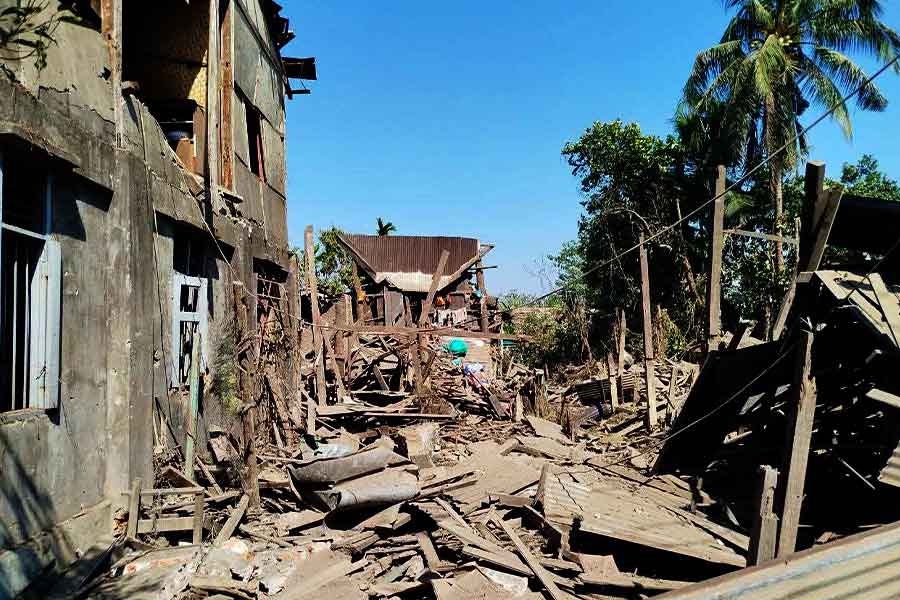
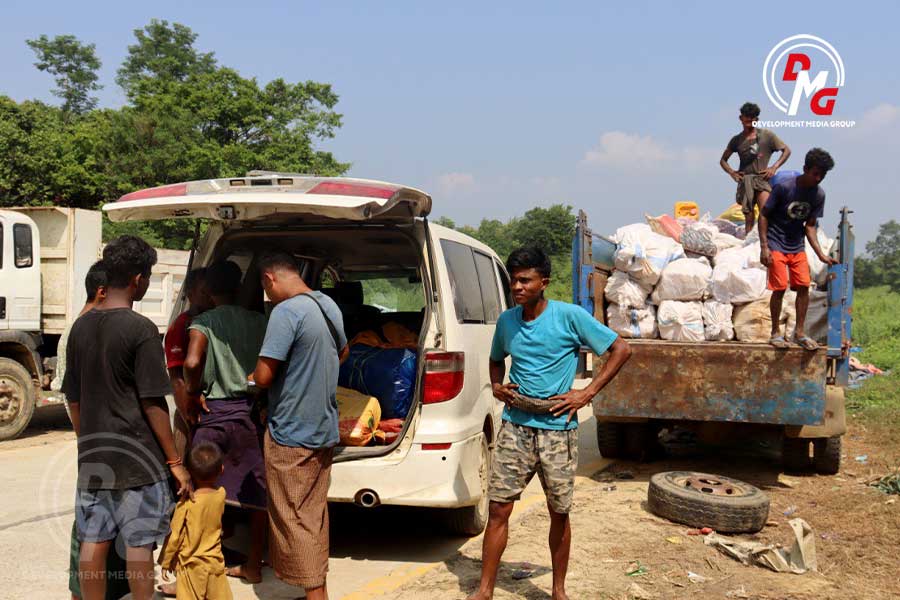
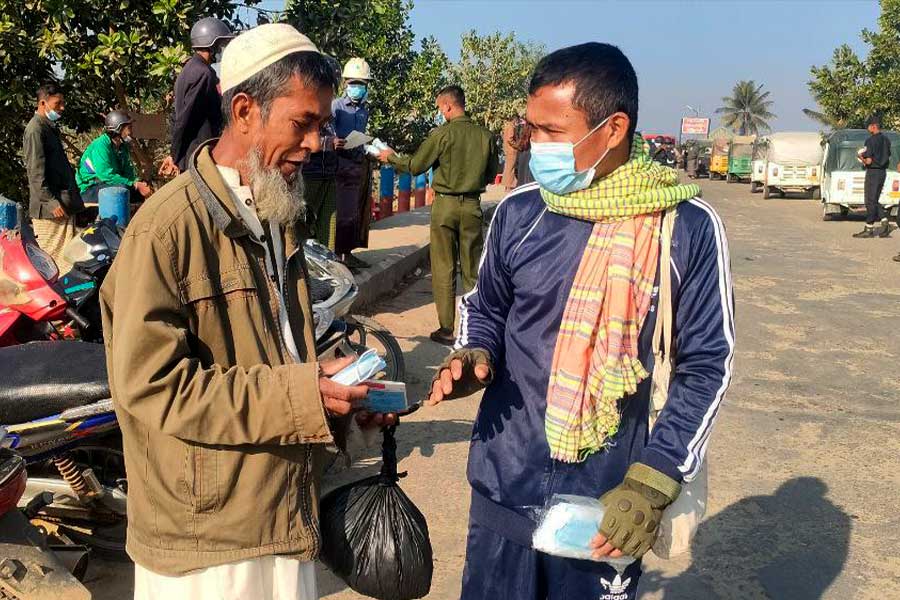
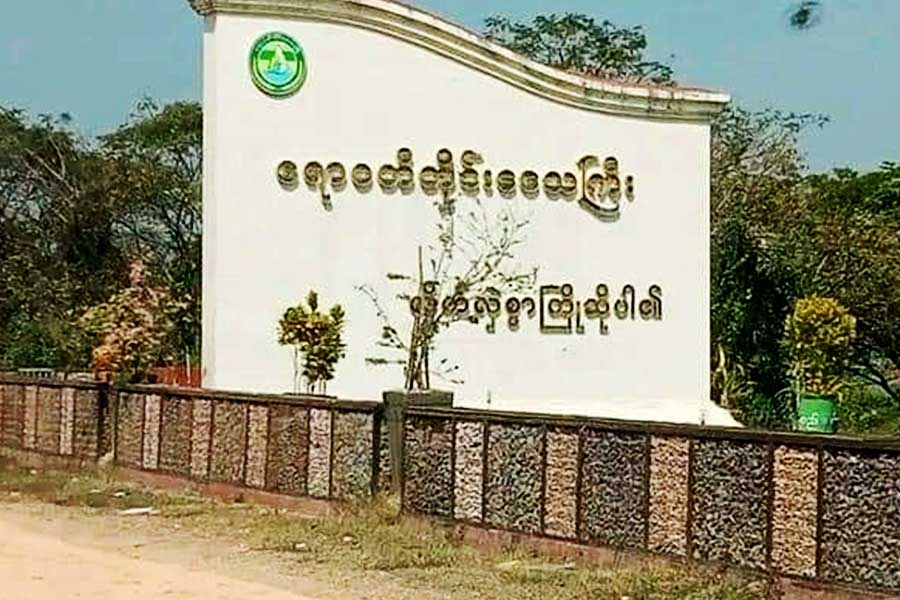
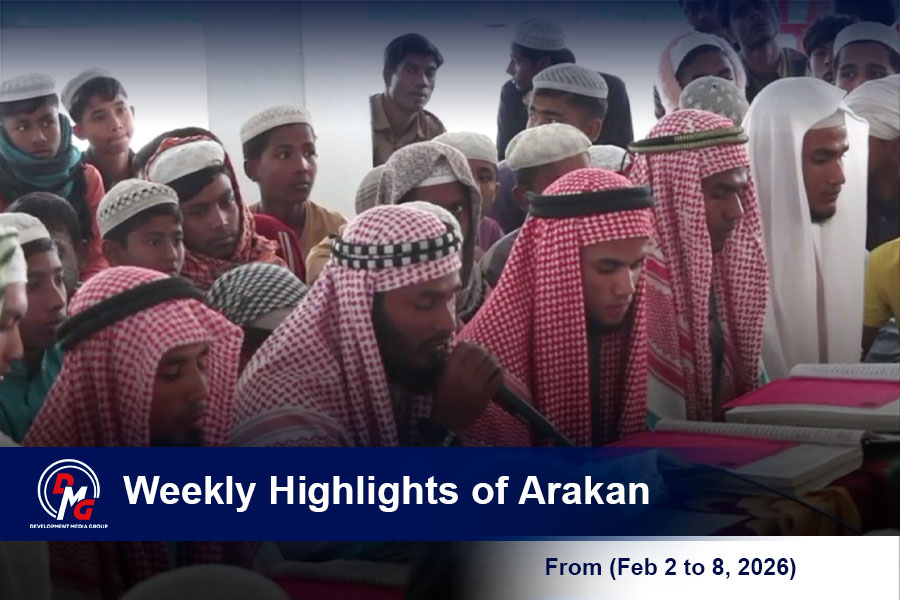







.jpg)
